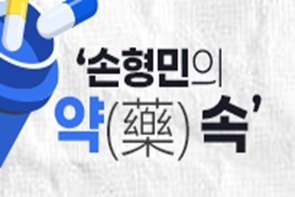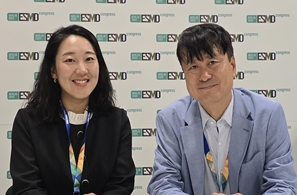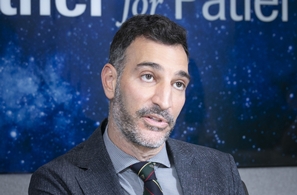- 1st to exceed KRW 1T sales…Pfizer's ESG initiatives
- by Whang, byung-woo | translator Hong, Ji Yeon | Feb 5, 2025 05:52am
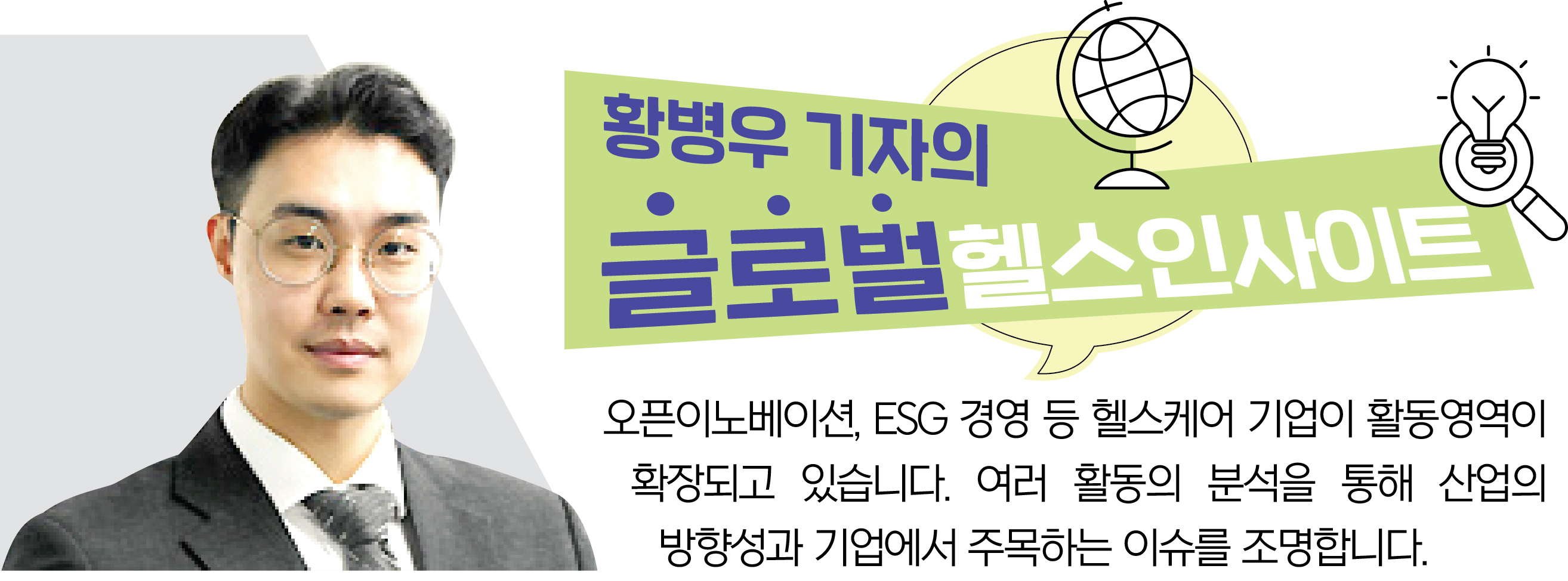
Pfizer Korea, the first to exceed KRW 1 trillion in sales from COVID-19 vaccine·treatments, continues strengthening its sustainable business management based on the ESG initiative.
After recording KRW 3 trillion in 2022 during the COVID-19 pandemic, Pifzer Korea's sales robustly decreased. However, despite unusual circumstances, the industry assesses that the company ensured internal stability afterward.
Also, Pfizer Korea launched the 'An Accord for a Healthier World (Health Equity)' study and appears to be expanding its influence in all ESG aspects, including pursuing long-term projects.
Major achievements during the COVID-19 pandemic…anticipates securing a stable source of sales
Pfizer Korea's past few years can be summarized with the keyword 'COVID-19.'
The company's sales robustly increased since 2021 after supplying the COVID-19 vaccine Comirnaty and the COVID-19 treatment Paxlovid. Pfizer Korea's sales reached ▲KRW 391.9 billion in 2020 ▲KRW 1.694 trillion in 2021 ▲KRW 3.2254 in 2022.
However, the 2023 sales amounted to KRW 1.6018 trillion, down 50.3% from the previous year. Analysis suggests that the sales were reduced in half due to decreased COVID-19 patients transitioning to the endemic.
Because distribution and marketing of the COVID-19 vaccine·treatment required minimal SG&A costs since the government primarily handled these, Pfizer Korea could generate high revenue.
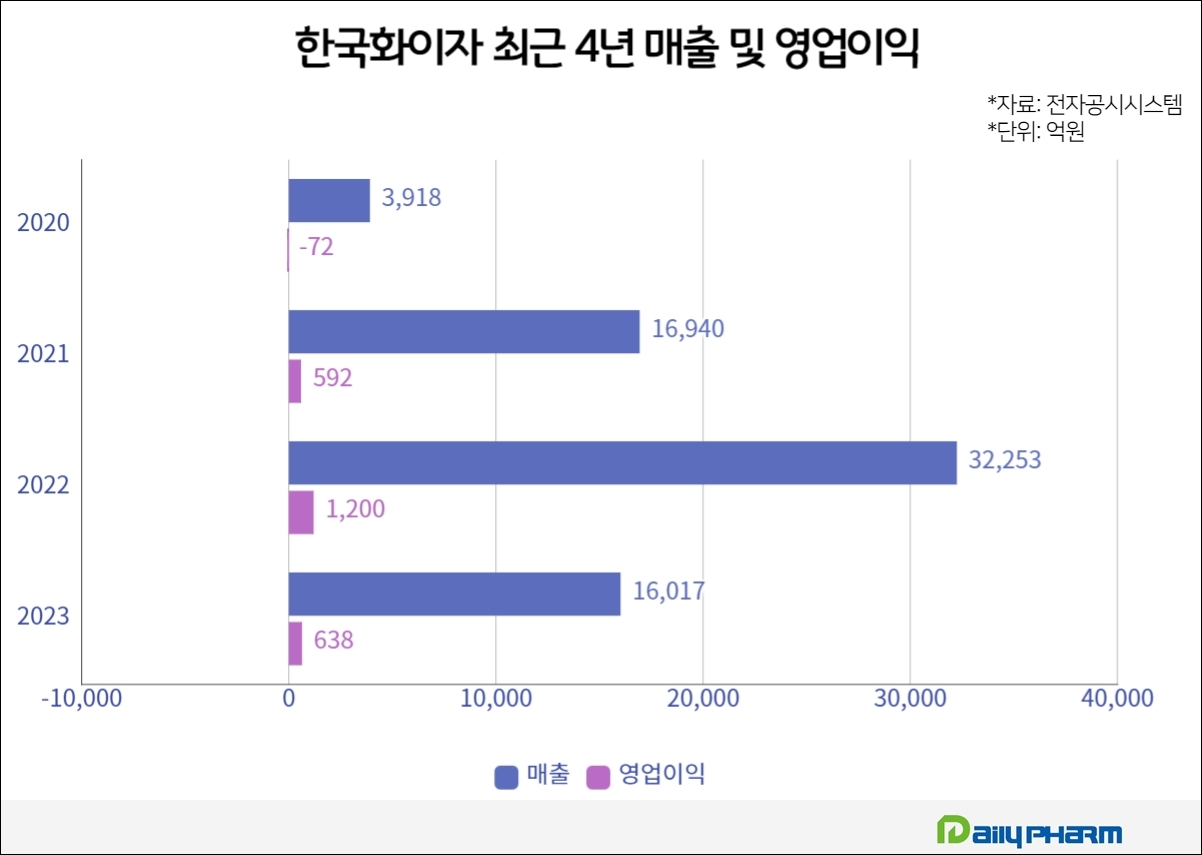
The sales trend for 2024 is yet unavailable. However, based on global sales, a significant drop, such as those observed in 2023 compared to 2022, seems unlikely.
Pfizer's Q3 sales last year recorded US$ 17.7 billion (approximately KRW 24.4 trillion), up 31.2% Year-over-Year (YoY).
Pfizer's net sales from Q1 to Q3 last year amounted to US$45.864 billion (approximately KRW 63.47 trillion), up 2.0% from the same period of the previous year.
Such sales growth was driven by the COVID-19 pharmaceuitcals. The COVID-19 treatment Paxlovid generated US$ 2.7 billion in Q3, which robustly increased by 1238.1% YoY.
Based on these statistics, Pfizer believes that the sales index for the COVID-19 vaccine·treatment has entered a stable period.
Despite experiencing robust increases and decreases in sales during the COVID-19 pandemic, Pfizer believes its potential sales are now predictable as the COVID-19 vaccination became mandated for the high-risk group. The South Korean government also actively secured treatments by adding Paxlovid to the reimbursement list.
Pfizer recently estimated 2025 sales to reach around US$ 61 billion (KRW 88 trillion) to US$ 64 billion (KRW 93 trillion).
It may not be close to the sales of US$ 100 billion (KRW 145 trillion) in 2022, but the company is likely to continue growth compared to the sales of US$ 58.5 billion (KRW 85 trillion) in 2023.
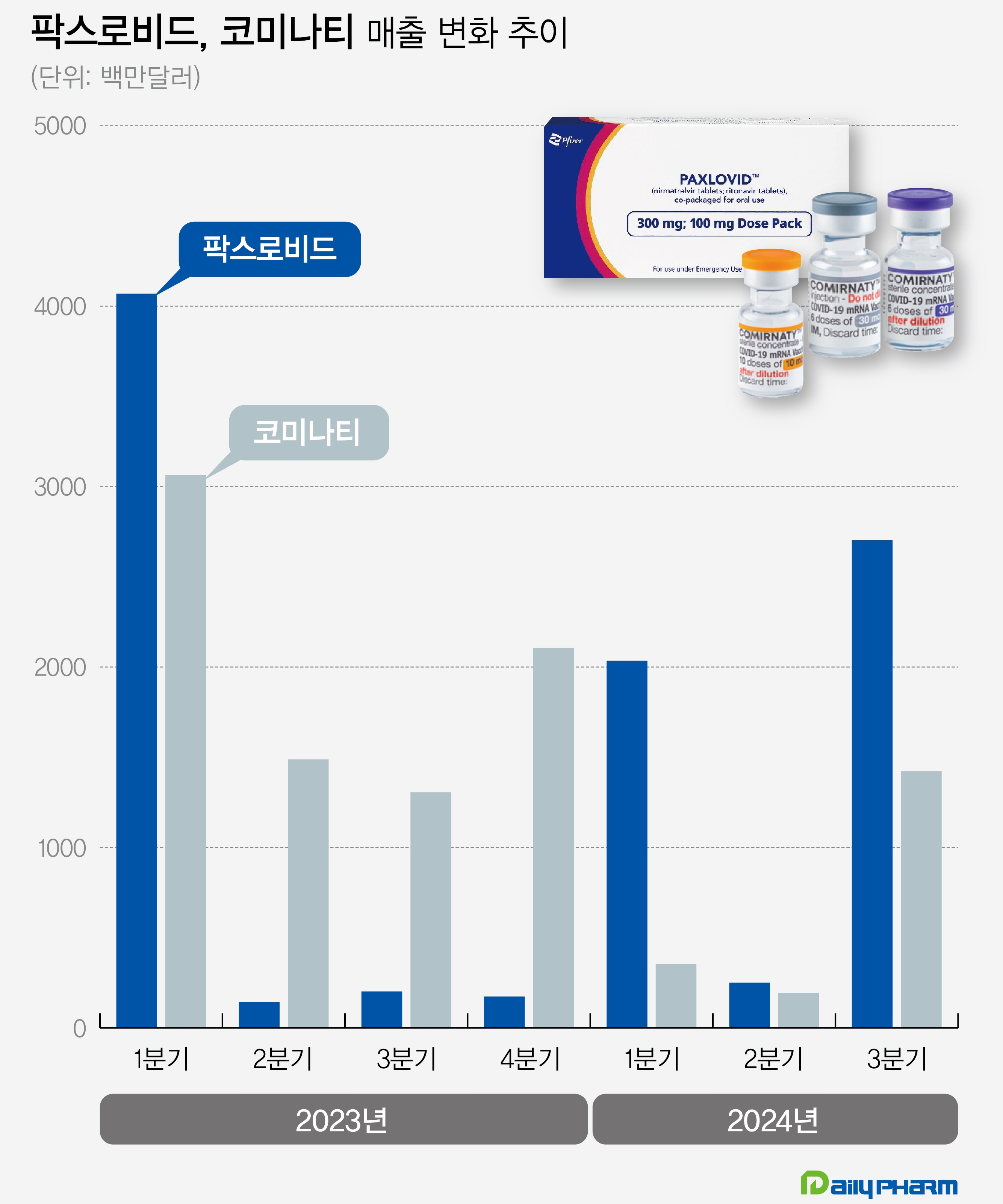
Cash cow sources following the pandemic…hopes for pneumococcal‧RSV vaccines대
Because COVID-19-related sales are expected to be limited, Pfizer needs a new cash cow to drive sales growth.
As part of its mid-to-long-term growth strategy, Pfizer aims to strengthen its position in the oncology sector by launching eight new drugs expected to generate over US$1 billion (approximately KRW 1.3 trillion) in sales by 2030.
For this goal, Seagen, an antibody-drug conjugate (ADC) specialist company that Pfizer acquired for US$ 43 billion (approximately KRW 55 trillion), is involved. Seagen has developed various ADC-based cancer therapies, including Adcetris, Padcev, and Tukysa.
Pfizer plans to establish a blockbuster drug portfolio centered on Seagen’s ADC therapies alongside its existing targeted cancer treatments, such as Ibrance for breast cancer and Lorbrena for lung cancer.
Given the momentum from the Seagen acquisition, Pfizer projects revenue from non-COVID-19 products to reach US$ 70 billion to US$ 84 billion (approximately KRW 95 trillion to KRW 114 trillion) by 2030.
Additionally, Pfizer has launched a global cost reduction initiative. Through its 'Cost Realignment Program,' the company aimed to cut US$ 4 billion (approximately KRW 5.2 trillion) in spending by 2024. Pfizer has also announced plans to further reduce costs by an additional US$ 1.5 billion (approximately KRW 2.1 trillion) by 2027.
CEO of Pfizer Albert Bourla stated, "Through the Cost Realignment Program, we successfully achieved our goal of reducing US$ 4 billion (KRW 5.8332 trillion) in net operating costs by 2024. We also expect to secure an additional US$ 500 million (KRW 729.1 billion) in 2025." Bourla added, "To further improve profitability, we will continue advancing our manufacturing optimization program this year."
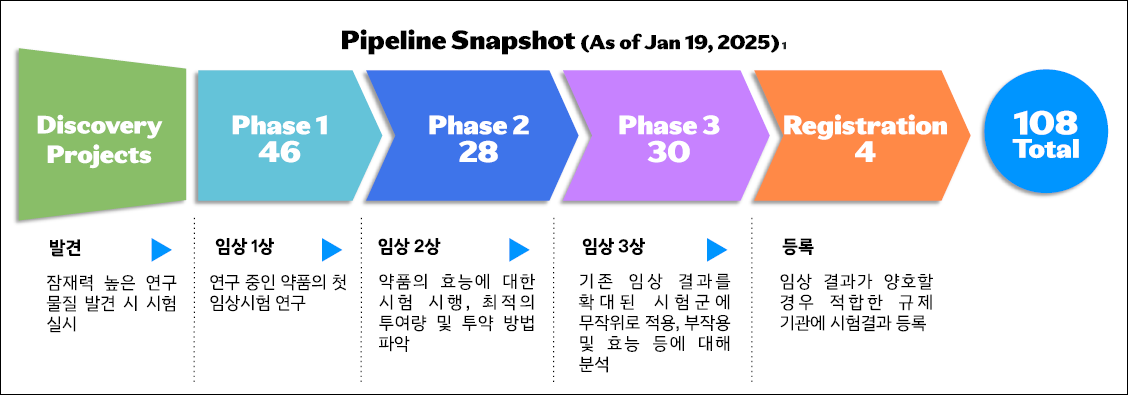
In the Korean market, many new products are expected to challenge the market. One notable product is Prevenar 20, which received approval from the MFDS in November last year.
It is a new pneumococcal vaccine that Pfizer is introducing in 14 years. The vaccine added seven new serotypes (serotypes 8, 10A, 11A, 12F, 15B, 22F, 33F) to the existing Prevenar 13.
The vaccine is projected to launch in the early half of the year. Since it has established solid ground in the global market, Prevenar 20 is anticipated to land quickly.
Mylotarg (gemtuzumab ozogamicin) for acute myeloid leukemia (AML), which has not been reimbursed, and 'VYNDAMAX (tafamidis)' for cardiomyopathy, which is near drug price negotiations with the HIRA, is expected to affect the sales for 2025.
Also, Pfizer's RSV vaccine is expected to be submitted for approval process this year. RSV is regarded as a new market opportunity.
Products have been approved or launched, GSK for adults and Sanofi for children, experts analyze that Pfizer, with adults and children indications, still has a chance in the competition.
Driven ESG initiatives, strengthened sustainable business management
Additionally, Pfizer conducts long-term projects by expanding all aspects of ESG initiatives to meet the goal to pursue social value and continue efforts.
Pfizer Korea launched the ESG initiative, 'Moves for a Healthier World,' in 2022, and has included it as one of the company goals.
For instance, the company has chosen six priority areas, including ▲Climate change action ▲Pharmaceutical innovation ▲Equitable Access to medicines ▲Diversity, Equity, and Inclusion ▲Pharmaceutical quality and safety ▲Company ethics, and has taken action on sub-projects.
As part of the Green Moves Campaign, Pfizer Korea recently donated KRW 10 million to the 'School Forest Project' hosted by the Forest for Life.
In collaboration with Pusan National University's Research and Business Development Foundation, Pfizer also commenced the 'Study to Develop Index and Analyze Social Determinants for Health Equity Across the Life Course' involving Korean citizens.
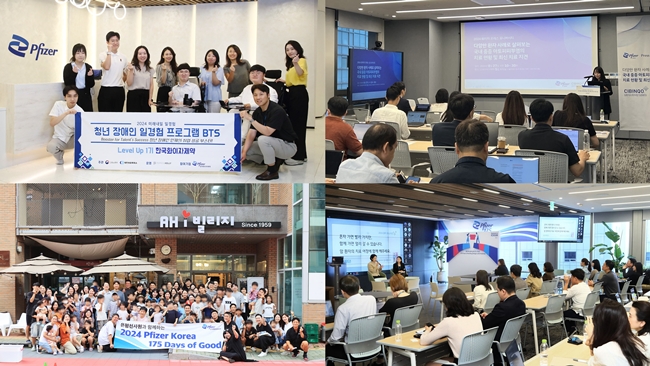
This project aims to assess healthcare inequality and enhance societal interest in alleviating the healthcare gap by focusing on increased healthcare inequality and losses in socially disadvantaged classes after the COVID-19 pandemic.
Additionally, Pfizer also holds various activities to enhance social value, including the 'Pfizer Medical Research Award,' which is in its 22nd year, and the Work Program for Young Disabled People.
Pfizer Korea CEO Dong-Wook Oh stated, "Pfizer Korea aims to realize 'Moves for a Healthier World' and continues efforts to bring positive changes to Korean society." Oh added, "The program covering all ESG aspects reflects Pfizer's goal and efforts to bring changes so that all people can experience a healthier world."
"The 'Health Equity' project launched last year will be our first crucial step in assessing Korea's healthcare equity state and establishing measures to improve the system," Oh added. "By closely collaborating with Korean researchers, Pfizer will strive to help people to stay healthy."
-

- 0
댓글 운영방식은
댓글은 실명게재와 익명게재 방식이 있으며, 실명은 이름과 아이디가 노출됩니다. 익명은 필명으로 등록 가능하며, 대댓글은 익명으로 등록 가능합니다.
댓글 노출방식은
댓글 명예자문위원(팜-코니언-필기모양 아이콘)으로 위촉된 데일리팜 회원의 댓글은 ‘게시판형 보기’와 ’펼쳐보기형’ 리스트에서 항상 최상단에 노출됩니다. 새로운 댓글을 올리는 일반회원은 ‘게시판형’과 ‘펼쳐보기형’ 모두 팜코니언 회원이 쓴 댓글의 하단에 실시간 노출됩니다.
댓글의 삭제 기준은
다음의 경우 사전 통보없이 삭제하고 아이디 이용정지 또는 영구 가입제한이 될 수도 있습니다.
-
저작권·인격권 등 타인의 권리를 침해하는 경우
상용 프로그램의 등록과 게재, 배포를 안내하는 게시물
타인 또는 제3자의 저작권 및 기타 권리를 침해한 내용을 담은 게시물
-
근거 없는 비방·명예를 훼손하는 게시물
특정 이용자 및 개인에 대한 인신 공격적인 내용의 글 및 직접적인 욕설이 사용된 경우
특정 지역 및 종교간의 감정대립을 조장하는 내용
사실 확인이 안된 소문을 유포 시키는 경우
욕설과 비어, 속어를 담은 내용
정당법 및 공직선거법, 관계 법령에 저촉되는 경우(선관위 요청 시 즉시 삭제)
특정 지역이나 단체를 비하하는 경우
특정인의 명예를 훼손하여 해당인이 삭제를 요청하는 경우
특정인의 개인정보(주민등록번호, 전화, 상세주소 등)를 무단으로 게시하는 경우
타인의 ID 혹은 닉네임을 도용하는 경우
-
게시판 특성상 제한되는 내용
서비스 주제와 맞지 않는 내용의 글을 게재한 경우
동일 내용의 연속 게재 및 여러 기사에 중복 게재한 경우
부분적으로 변경하여 반복 게재하는 경우도 포함
제목과 관련 없는 내용의 게시물, 제목과 본문이 무관한 경우
돈벌기 및 직·간접 상업적 목적의 내용이 포함된 게시물
게시물 읽기 유도 등을 위해 내용과 무관한 제목을 사용한 경우
-
수사기관 등의 공식적인 요청이 있는 경우
-
기타사항
각 서비스의 필요성에 따라 미리 공지한 경우
기타 법률에 저촉되는 정보 게재를 목적으로 할 경우
기타 원만한 운영을 위해 운영자가 필요하다고 판단되는 내용
-
사실 관계 확인 후 삭제
저작권자로부터 허락받지 않은 내용을 무단 게재, 복제, 배포하는 경우
타인의 초상권을 침해하거나 개인정보를 유출하는 경우
당사에 제공한 이용자의 정보가 허위인 경우 (타인의 ID, 비밀번호 도용 등)
※이상의 내용중 일부 사항에 적용될 경우 이용약관 및 관련 법률에 의해 제재를 받으실 수도 있으며, 민·형사상 처벌을 받을 수도 있습니다.
※위에 명시되지 않은 내용이더라도 불법적인 내용으로 판단되거나 데일리팜 서비스에 바람직하지 않다고 판단되는 경우는 선 조치 이후 본 관리 기준을 수정 공시하겠습니다.
※기타 문의 사항은 데일리팜 운영자에게 연락주십시오. 메일 주소는 dailypharm@dailypharm.com입니다.
- [Reporter’s View] ‘Selection & Focus’ to foster K-Bios
- Reporter's view | Hwang, byoung woo



